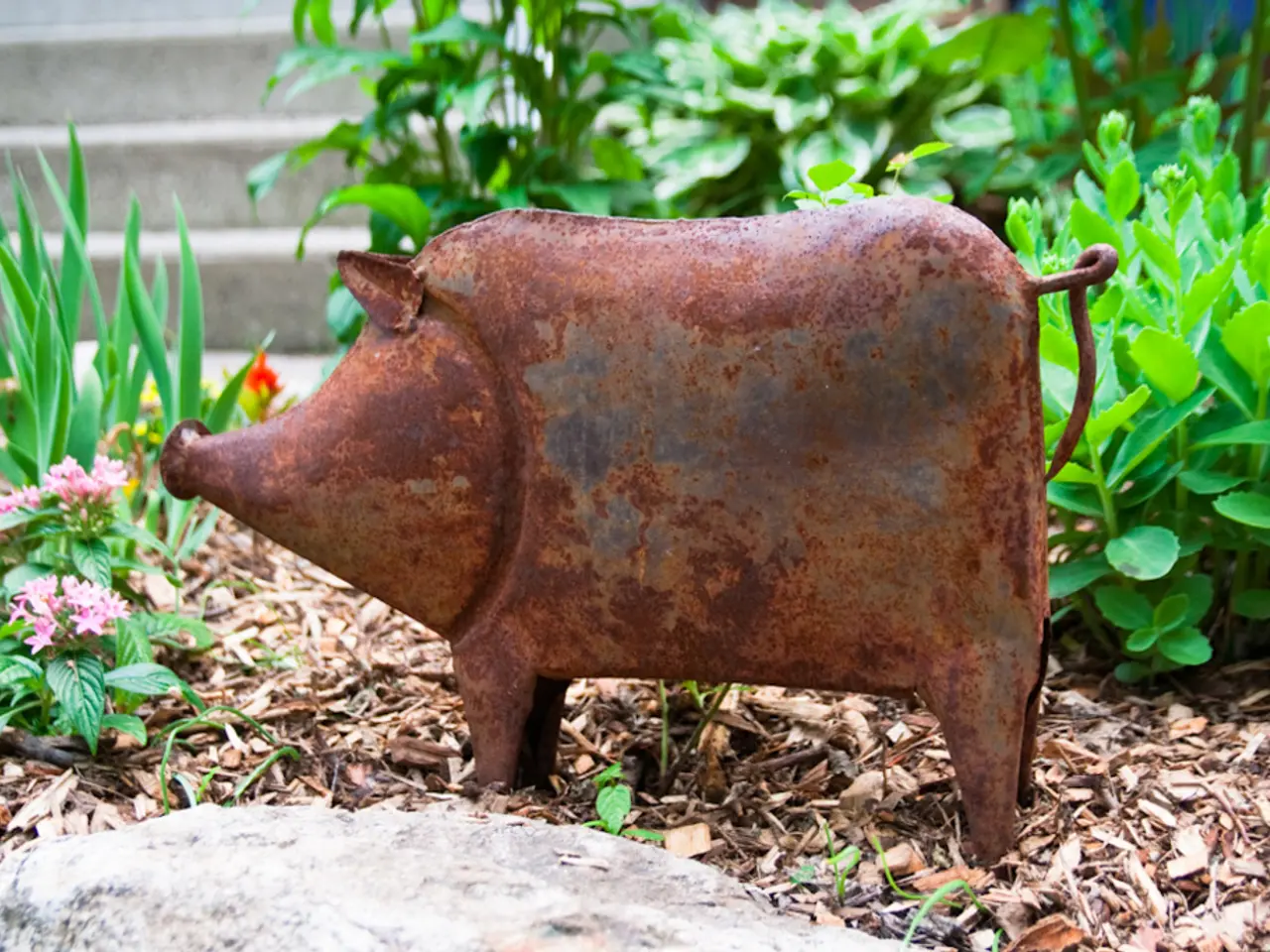Iron Deficiency Leads to Hair Loss?
Iron plays a crucial role in our bodies, carrying oxygen to cells for growth and repair, including those responsible for hair growth. However, many women of child-bearing age who may not get enough iron in their diet are at risk for iron-related hair loss. In fact, iron deficiency is a common cause of hair loss in premenopausal women, affecting about 20% of this group [2][4].
Hair follicles require adequate iron for healthy growth, and deficiency can disrupt the hair growth cycle, leading to shedding and thinning. To address this issue, it's essential to confirm iron deficiency through specific blood tests. Low serum ferritin levels (under 30 ng/mL) and transferrin saturation below 15% signal true iron deficiency rather than anemia from chronic disease [4].
Once iron deficiency is confirmed, treatment options include oral iron supplementation, intravenous iron therapy, and hormonal treatments for those with excessive menstrual blood loss. Oral iron supplementation, typically ferrous sulfate with 65 mg elemental iron, raises hemoglobin levels by about 1 g/dL every 2–3 weeks, but side effects like nausea or constipation may affect compliance [4]. Intravenous iron therapy is considered when hemoglobin is very low or oral iron is not tolerated or effective.
In cases where menstrual blood loss contributes to iron deficiency, hormonal treatments such as IUDs that reduce bleeding by up to 90% may help prevent recurrence [4]. Iron repletion usually requires 6–9 months of consistent supplementation with monitoring of ferritin levels to fully restore iron stores and prevent relapse, even after anemia resolves [4].
Making sure we have a healthy amount of iron in our diet is also important. Iron-rich foods include spinach, broccoli, peas, tofu, beef, and lamb. If you're a meat eater, getting two 4-ounce portions of red meat per week can help maintain healthy levels of iron for most women. For vegetarians and vegans, focusing on foods like beans, spinach, and other dark leafy green vegetables can help. Vitamin C-rich foods like oranges, strawberries, and tomatoes can help your body absorb the iron you consume.
If you suspect hair loss is due to an iron deficiency, consult a doctor for a blood test. Most hair loss due to an iron deficiency is reversible, but it's essential to address the issue promptly. Iron supplements can cause constipation, and slow-release supplements are preferred. A well-balanced diet can help ensure you get the recommended amount of iron each day.
Remember, if you notice increased hair shedding, consult a dermatologist for a treatment plan. Heavy exercise can cause small tears in joints or the lining of the stomach, leading to iron loss over time and potential anemia. Lastly, iron helps your body produce hemoglobin, a protein in red blood cells, and plays a vital role in hair growth and hair health. In summary, addressing iron deficiency is key to maintaining healthy hair and overall well-being.
- Adequate iron is necessary for the health of hair follicles, as deficiency can disrupt the hair growth cycle, leading to shedding and thinning.
- To prevent recurrence of iron deficiency-related hair loss, iron repletion through supplementation for 6-9 months might be required to fully restore iron stores.
- A well-balanced diet that includes iron-rich foods such as spinach, broccoli, peas, tofu, beef, and lamb, or alternative sources like beans and dark leafy green vegetables, can help ensure the recommended daily amount of iron is consumed.




